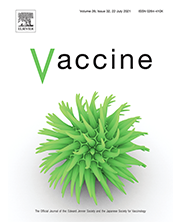Zimbabwe has one of the highest incidence rates of cervical cancer in the world – 61.7 per 100,000 women. The government of Zimbabwe introduced bivalent HPV vaccine with a 0,12 month schedule to all 10–14 year old girls using a pulsed-campaign approach in May 2018 (dose 1) and May 2019 (dose 2).
In August 2019, the research team conducted a population-based, two-stage cluster survey of households with girls who were eligible for the national HPV vaccination program to determine two-dose HPV vaccination coverage in three districts of Zimbabwe. All households with girls currently aged 11 to 15 years were line-listed through a census conducted in the pre-selected clusters from each district prior to survey administration. A simple random sample of eligible households was selected from these lists to estimate HPV vaccine coverage at sufficient power with a margin of error of +/- 5%. Criteria for district selection included estimated vaccine uptake (low, medium, high), rural/urban/peri-urban, geographic area, estimated number of girls not in school, and recent natural disasters or disease outbreaks. The research team oversampled households with girls aged 13 or 14 years at the time of dose 1.
On-time dose 1 uptake ranged from 88 to 94% and two-dose HPV vaccine coverage ranged from 75 to 86% across the three districts. Nearly all vaccinations occurred in schools, and less than 2% of girls did not attend school. There were challenges assessing ages of girls at schools prior to vaccination – 9% of girls vaccinated were less than 10 years old at time of dose 1. Zimbabwe has demonstrated that high uptake and successful completion of 2-dose HPV vaccination can be achieved with an annual dosing schedule. Efforts going forward will need to focus on minimizing dropout between doses and routinizing annual vaccinations in schools for every subsequent new cohort of eligible girls in the country.
Authors: D. Scott LaMontagne, Portia Manangazira, Joan Marembo, Colline Chigodo, Coscar Zvamashakwe, Emma Tshuma, Evelyn Marima, Kenneth Chindedza, Ernest Ndlela, Jessica Mooney


